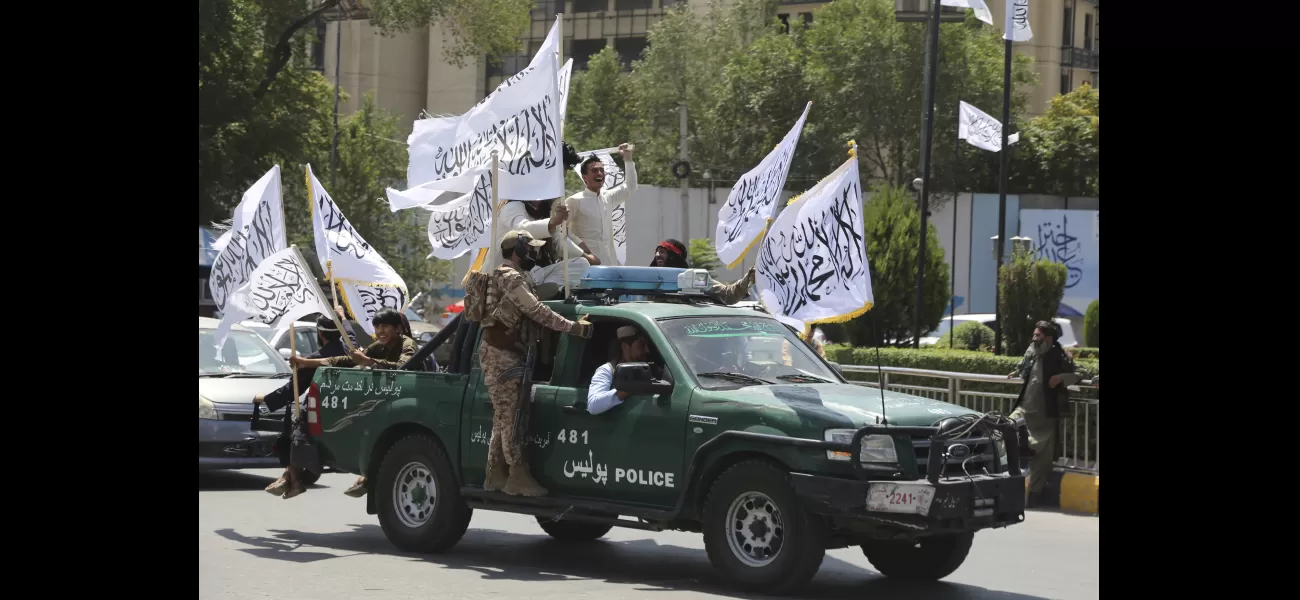Taliban leaders impose restrictions on women's appearance and speech in public.
Taliban in Afghanistan has banned women from speaking and showing their faces in public to promote morality and prevent wrongdoing.
August 24th 2024.

In recent news, the Taliban leaders in Afghanistan have announced a new set of laws that restrict women's voices and require them to cover their faces in public. The supreme leader, Hibatullah Akhundzada, approved these laws, which aim to combat immoral activities and promote virtuous behavior.
According to a government spokesperson, these laws were issued on Wednesday and are the first formal declaration of vice and virtue laws in Afghanistan since the Taliban took control of the country in 2021. This decision comes after the establishment of a ministry for the "propagation of virtue and the prevention of vice" by the Taliban.
The ministry released a 114-page document outlining the laws, which cover various aspects of daily life, such as public transportation, music, and celebrations. These laws are now in effect and will be enforced by the ministry, which has been empowered to regulate personal conduct and administer punishments for those who break the laws.
One of the key laws that have sparked controversy is Article 13, which pertains to women. It states that women must cover their bodies at all times in public and wear a face covering to avoid temptation and temptation of others. The clothing should not be revealing, tight, or short. Women are also required to cover themselves in front of all males, including non-Muslims.
Furthermore, women are not allowed to speak in public, whether it be singing, reciting, or reading aloud, as their voices are considered intimate. They are also prohibited from making eye contact with men they are not related to. These laws have raised concerns about the rights and freedoms of women in Afghanistan.
The laws also extend to other aspects of society, such as the media, transportation, and social interactions. Article 17 bans the publication of images of living beings, while Article 19 prohibits the playing of music, the transportation of solo female travelers, and the mixing of unrelated men and women. In addition, passengers and drivers are required to perform prayers at designated times.
The ministry's website states that the promotion of virtue includes encouraging women to wear hijab, aligning the behavior of Muslims with Islamic law, and promoting the five pillars of Islam. On the other hand, the elimination of vice involves prohibiting activities that go against Islamic law.
However, these laws have been met with criticism, especially from the United Nations (UN). A recent UN report stated that the ministry's role is expanding, and it is now involved in media monitoring and addressing drug addiction. The report also expressed concerns about the impact of these laws on women and girls in Afghanistan.
Fiona Frazer, the head of the UN's human rights service in Afghanistan, stated that the Taliban's stance on increasing and expanding their oversight is concerning, especially for women and girls. The Taliban, on the other hand, has rejected the UN's report.
As this situation continues to unfold, we will keep you updated on the latest developments. Stay informed and connected by following us on our WhatsApp channel, where you can receive breaking news, celebrity updates, and sports news without any distractions or privacy concerns. Join us now and stay informed.
According to a government spokesperson, these laws were issued on Wednesday and are the first formal declaration of vice and virtue laws in Afghanistan since the Taliban took control of the country in 2021. This decision comes after the establishment of a ministry for the "propagation of virtue and the prevention of vice" by the Taliban.
The ministry released a 114-page document outlining the laws, which cover various aspects of daily life, such as public transportation, music, and celebrations. These laws are now in effect and will be enforced by the ministry, which has been empowered to regulate personal conduct and administer punishments for those who break the laws.
One of the key laws that have sparked controversy is Article 13, which pertains to women. It states that women must cover their bodies at all times in public and wear a face covering to avoid temptation and temptation of others. The clothing should not be revealing, tight, or short. Women are also required to cover themselves in front of all males, including non-Muslims.
Furthermore, women are not allowed to speak in public, whether it be singing, reciting, or reading aloud, as their voices are considered intimate. They are also prohibited from making eye contact with men they are not related to. These laws have raised concerns about the rights and freedoms of women in Afghanistan.
The laws also extend to other aspects of society, such as the media, transportation, and social interactions. Article 17 bans the publication of images of living beings, while Article 19 prohibits the playing of music, the transportation of solo female travelers, and the mixing of unrelated men and women. In addition, passengers and drivers are required to perform prayers at designated times.
The ministry's website states that the promotion of virtue includes encouraging women to wear hijab, aligning the behavior of Muslims with Islamic law, and promoting the five pillars of Islam. On the other hand, the elimination of vice involves prohibiting activities that go against Islamic law.
However, these laws have been met with criticism, especially from the United Nations (UN). A recent UN report stated that the ministry's role is expanding, and it is now involved in media monitoring and addressing drug addiction. The report also expressed concerns about the impact of these laws on women and girls in Afghanistan.
Fiona Frazer, the head of the UN's human rights service in Afghanistan, stated that the Taliban's stance on increasing and expanding their oversight is concerning, especially for women and girls. The Taliban, on the other hand, has rejected the UN's report.
As this situation continues to unfold, we will keep you updated on the latest developments. Stay informed and connected by following us on our WhatsApp channel, where you can receive breaking news, celebrity updates, and sports news without any distractions or privacy concerns. Join us now and stay informed.
[This article has been trending online recently and has been generated with AI. Your feed is customized.]
[Generative AI is experimental.]
0
0
Submit Comment





